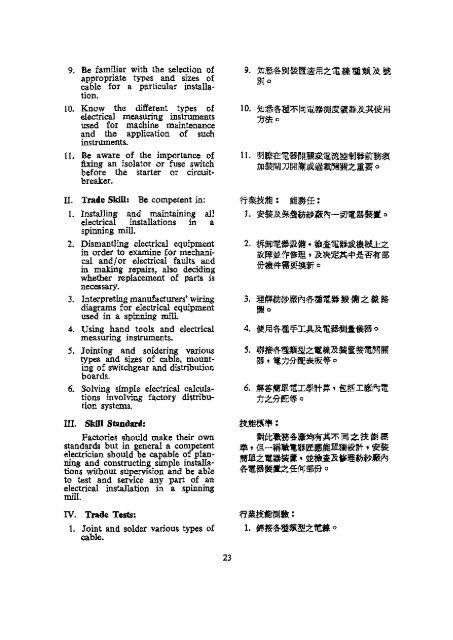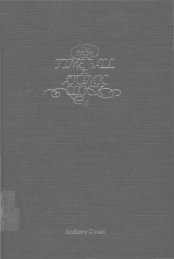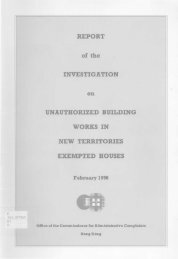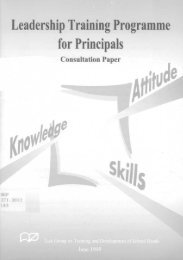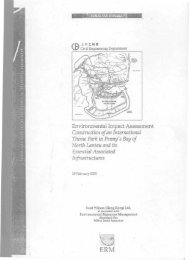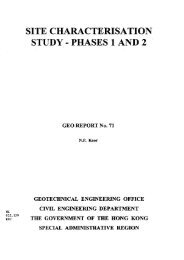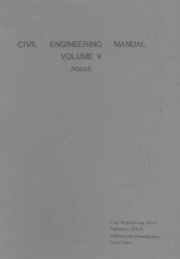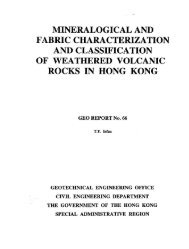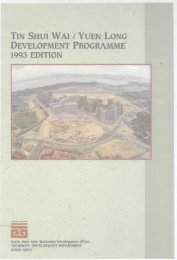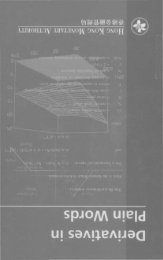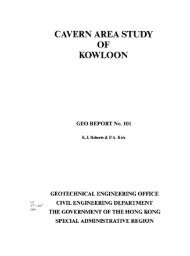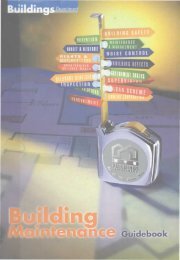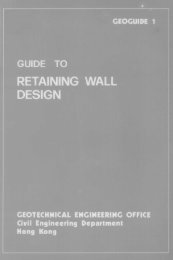m - HKU Libraries
m - HKU Libraries
m - HKU Libraries
You also want an ePaper? Increase the reach of your titles
YUMPU automatically turns print PDFs into web optimized ePapers that Google loves.
9. Be familiar with the selection of<br />
appropriate types and sizes of<br />
cable for a particular installation.<br />
10. Know the different types of<br />
electrical measuring instruments<br />
used for machine maintenance<br />
and the application of such<br />
instruments.<br />
11. Be aware of the importance of<br />
fixing an isolator or fuse switch<br />
before the starter or circuitbreaker.<br />
II. Trade Skill: Be competent in:<br />
1. Installing and maintaining all<br />
electrical installations in a<br />
spinning mill.<br />
2. Dismantling electrical equipment<br />
in order to examine for mechanical<br />
and/or electrical faults and<br />
in making repairs, also deciding<br />
whether replacement of parts is<br />
necessary.<br />
3. Interpreting manufacturers* wiring<br />
diagrams for electrical equipment<br />
used in a spinning mill.<br />
4. Using hand tools and electrical<br />
measuring instruments.<br />
5. Jointing and soldering various<br />
types and sizes of cable, mounting<br />
of switchgear and distribution<br />
boards.<br />
6. Solving simple electrical calculations<br />
involving factory distribution<br />
systems.<br />
III. Skill Standard:<br />
Factories should make their own<br />
standards but in general a competent<br />
electrician should be capable of planning<br />
and constructing simple installations<br />
without supervision and be able<br />
to test and service any part of an<br />
electrical installation in a spinning<br />
mill.<br />
IV. Trade Tests:<br />
1. Joint and solder various types of<br />
cable.


